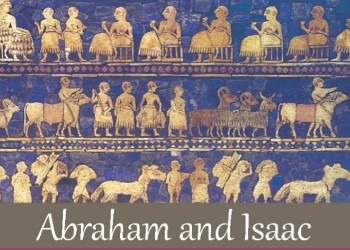 Tenor Philippe Durrant and counter-tenor Lewis Cullen have both played a big part in Durham’s musical scene over their three years here as undergraduates, taking leading roles in student opera, appearing as oratorio soloists, and on top of that, singing services every day in the cathedral as student choral scholars. Both men clearly have promising singing careers ahead of them: Lewis leaves Durham for a place on Robert Hollingworth’s prestigious MA in Ensemble Singing at York, Phil has engagements lined up as a Waterperry Opera Festival Young Artist and will remain in Durham as a lay clerk at the cathedral, and both Phil and Lewis have been selected for The Sixteen’s training programme, Genesis Sixteen.
Tenor Philippe Durrant and counter-tenor Lewis Cullen have both played a big part in Durham’s musical scene over their three years here as undergraduates, taking leading roles in student opera, appearing as oratorio soloists, and on top of that, singing services every day in the cathedral as student choral scholars. Both men clearly have promising singing careers ahead of them: Lewis leaves Durham for a place on Robert Hollingworth’s prestigious MA in Ensemble Singing at York, Phil has engagements lined up as a Waterperry Opera Festival Young Artist and will remain in Durham as a lay clerk at the cathedral, and both Phil and Lewis have been selected for The Sixteen’s training programme, Genesis Sixteen.
All that is still to come. This evening, they gave a quiet and thoughtful concert for Durham Cathedral Choir Association, with Francesca Massey accompanying, that seemed to reflect a little on endings, and which finished with a piece that the two say they have always wanted to perform together, Britten’s Canticle II: Abraham and Isaac. The concert was staged in the north transept of the cathedral, which worked very well, as it meant we had the feeling of intimacy with the performers, but the singers could still play a little with the cathedral acoustic.
Leading up to Britten’s canticle-duet, the two singers took turns in a programme of English song, beginning with Britten’s realisations of Purcell, followed by Handel, Browne, Howells and Britten. Phil began with Purcell/Britten Morning Hymn, which was quietly radiant, and singing off-copy, he was engaged and communicative with the audience right from the start. Lewis gave us the other end of the day, with Purcell’s Evening Hymn, which, with Francesca’s gently rocking accompaniment flowed in gorgeously long phrases, ending in Alleluias that were bathed in a golden glow.
Lewis’s Handel piece, O Lord, whose mercies numberless, from Saul continued the mood of evening sunshine; his warm tone was carefully controlled and ornamented with neat trills, in a lovely performance. Francesca then executed a change of atmosphere with her striking introduction to Phil’s Handel, Total Eclipse from Solomon. Phil delivered this with plenty of power, making use of the cathedral space behind us, but with thoughtfulness for the text.
To Gratiana Dancing and Singing by William Denis Browne and sung by Phil took us into the twentieth century. The text, by the seventeenth century poet William Lovelace is rather ponderous, but Francesca’s feather-light accompaniment lifted both words and music.
Lewis closed the first section of the recital with Howells and Britten. King David by Howells is a setting of a poem by Walter de la Mare, which tells how the harp cannot cure King David’s inexplicable melancholy, but his woes are eased by the singing of a nightingale. The poignancy of Lewis’s singing and Francesca’s delicate portrayal of the nightingale, high in the piano, completely drew me into the story. I know a bank looked back to Lewis’s role last year as Oberon in a DOE production of Britten’s A Midsummer Night’s Dream, and he brought the full weight of the role to this short aria: first passionate, but as the melody dwindles to one of Britten’s characteristic and doom-laden chants, he became chillingly sinister.
And so to Abraham and Isaac, Britten’s succinct version of an old English mystery play, recounting one of the Old Testament’s nastiest episodes, in which God tests Abraham by ordering him to sacrifice his only, much-longed for, child. At the last minute, with Isaac bound and Abraham poised with the knife, God provides a substitute. Britten captures all this in sparse, concentrated music, steeped in anguish. The two voices, with the singers turned away from the audience, unite to provide the words of God. Lewis and Phil’s voices here were absolutely meshed together in an eerie, disembodied chant that chilled me to the bone. Breaking into their separate roles, they were at first joyful, and absolutely in character as a father and son setting off for a nice country walk, although the fact that Britten later reused music from this passage for the ‘Quam Olim Abrahae’ fugue in the War Requiem now adds retrospective poignancy to this passage.
Both singers were utterly convincing in their roles here. Phil was passionate in his asides to God begging for mercy, whilst Lewis began full of innocence before being swamped by fear, and I was moved to tears by Lewis’s solo in which Isaac asks his father to send his farewells to his mother. Francesca’s piano ratcheted up the sense of terror, until suddenly, God sends the sacrificial ram. The singers return to their duet to praise God and implore that we all may be obedient, but the chilling music is a stark commentary on the emotional damage to father and son, enhanced by the quiet restraint of this moving performance.





